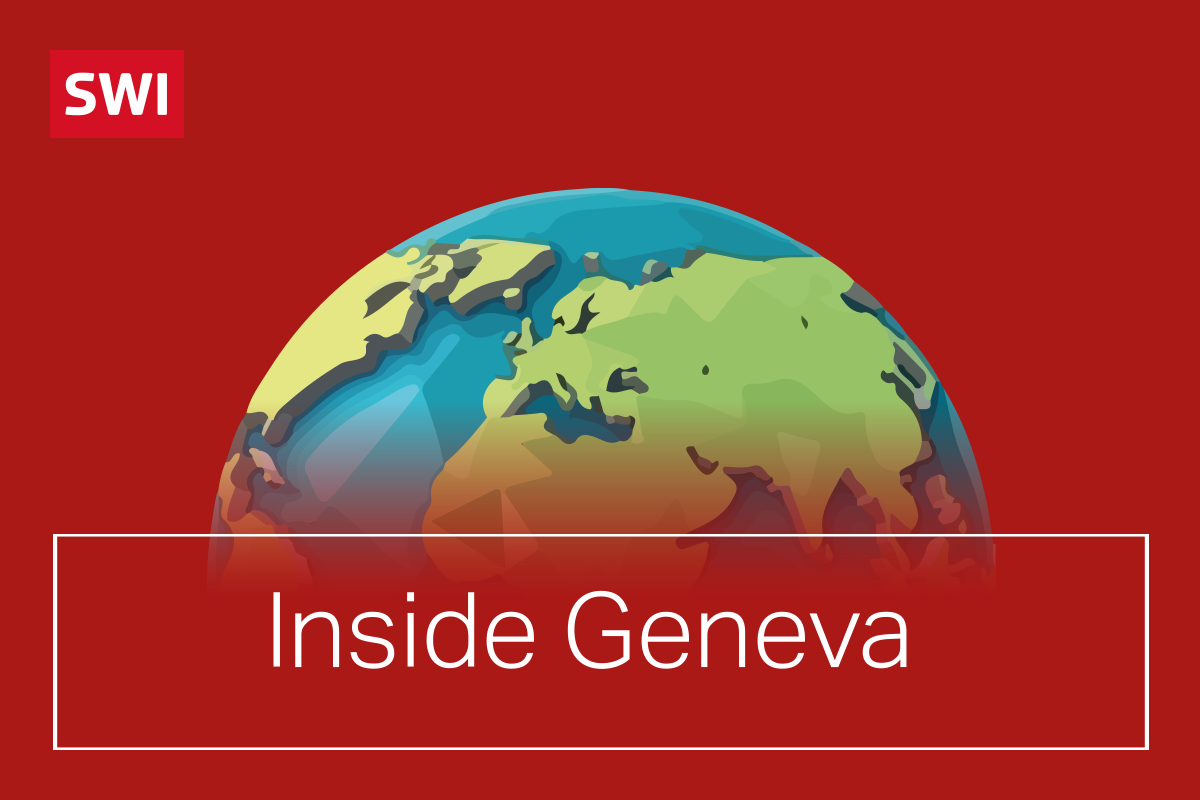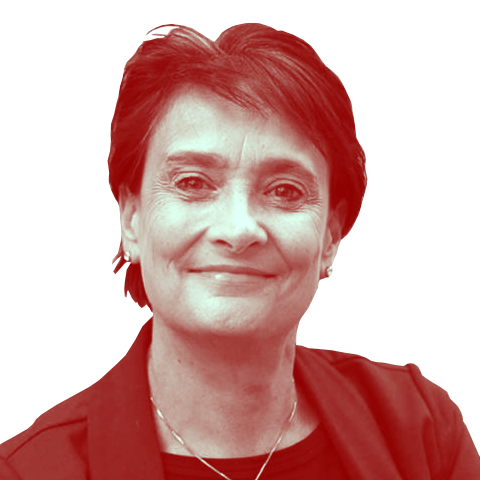What a time for peace week
Some of you may have noticed that Geneva was host to Peace Week earlier this month – dubbed a “global conversation on peace and security” the event happens every year. To many of us journalists keeping an eye on it, this year it seemed almost tragically ironic, given the very unpeaceful state of the world.
In Ukraine, in Sudan, and now, brutally, in the Middle East, there are conflicts where no one fighting seems at all interested in stopping, and that vague group known as the “international community” seems powerless to intervene.
Why are we so good at starting wars, and so bad at preventing or resolving them? Why can’t the United Nations do what it was designed to do and mediate? Why, particularly when it comes to the Middle East, are individual countries floundering to devise an appropriate diplomatic position? That’s what we are discussing on Inside Geneva this week.

More
Inside Geneva: the UN, Peace Week, and the Middle East
Is the UN helpless?
When I dropped in on Peace Week, I was lucky enough to catch up with former UN Human Rights Commissioner Zeid Ra’ad al Hussein. Famous for being outspoken during his time in office, he now offered complete support to UN secretary general Antonio Guterres’ comments in which he condemned unreservedly the Hamas attack on Israel, but also spoke of the decades of oppression of the Palestinian people, and warned Israel against “collective punishment”.
These remarks infuriated Israel, so much so that some called on Guterres to resign, but Zeid, who also condemned the Hamas attacks unreservedly, backs him. “How can there be doubt that there is collective punishment?”, Zeid told me. “When you switch off the water and medicines and essential food to 2.2 million people, how can it be otherwise? The secretary general was right to say what he said…the UN has to say things as they see them.”
The problem though is that, in a conflict as longstanding, and as bitter, as this, we look to the UN to make efforts towards peace. Instead, Israel appears to have dismissed any input from the secretary general, and the security council has been unable to agree the wording of a resolution to calm things down. “The organisation looks absolutely helpless,” says Zeid.
That helplessness is affecting the humanitarian arm of the UN here in Geneva, where aid agencies sound increasingly frustrated, desperate even, as they beg for access to Gaza, for the protection of hospitals, for some fuel to run the incubators and dialysis machines, or some clean water for thousands of displaced children to drink.
The humanitarians can clean up afterwards
Over in New York, Richard Gowan of the International Crisis Group agrees that the Israel Palestine conflict is one in which the political and diplomatic efforts of the UN are especially paralysed. ‘‘I think the UN high command on the one hand, and the Israelis on the other hand, have just decided that in rhetorical terms their relationship cannot be saved” Gowan tells Inside Geneva. “And they are laying into each other in very firm language.”
Behind that firm language, however, Gowan detects a fairly cynical pragmatism. “At the end of the day, when the shooting stops, the UN is going to be there to help clean up the mess. That’s the role the UN always plays in the Middle East…trying to restore normal life, trying to guide reconstruction.”
Looking at the pictures of Gaza now, that is going to be a massive, multi-billion dollar task, and, as our analyst Daniel Warner rightly points out on Inside Geneva, it’s “the sticking plaster approach”, in which the United Nations, paralysed from the top by its ineffective security council, leaves its humanitarian agencies to sweep up the rubble, mop up the blood, and bury the dead from wars it has failed to prevent.
Positioning for the day after
Already, there is talk of what Israel and Palestine might look like “the day after”. Unfortunately, no one has a clear idea, and many countries look confused and amateurish as they try to find the right words, let alone a coherent diplomatic position.
Britain has got itself into a ridiculous row over the right to protest on behalf of Gaza, and made the work of the police far more difficult. Germany, in its understandable efforts to show support for Israel, has (or at least the statements of some of its politicians have) veered uncomfortably close to Islamophobia directed towards its own Muslim population.
Here in Switzerland, the government recently pledged additional funds to big aid agencies to help, it seems, their work in Gaza. But just days before that, it announced it was suspending funding to 11 small non-governmental organisations, six Palestinian, and five Israeli. All were working in the field of human rights. The statement from Switzerland says that given the changed context in the Middle East, it wants to “carry out a fresh, in-depth analysis of all financial flows’ in order to assess the ‘relevance and feasibility of programmes.”
It’s understandable that countries, especially when the fog of war descends, want to make absolutely sure their taxpayers’ money is going where it is supposed to, but Erin Kilbride of Human Rights Watch is critical of the Swiss decision. Pointing out that since all 11 organisations are long standing, well known, and were last assessed by the Swiss only this summer, she tells Inside Geneva the decision to suspend is, especially now, a mistake.
“Now is simply not the time to be further suffocating the human rights community in Israel and Palestine. The presence of armed conflict makes human rights defenders work more, not less, important. This is the exact wrong moment to stop supporting civil society.”
To hear more of this fascinating discussion, including Zeid’s thoughts on the resilience of international law, and our own inability to see beyond our own pain, tune in to Inside Geneva – it’s a great listen!

In compliance with the JTI standards
More: SWI swissinfo.ch certified by the Journalism Trust Initiative

You can find an overview of ongoing debates with our journalists here . Please join us!
If you want to start a conversation about a topic raised in this article or want to report factual errors, email us at english@swissinfo.ch.